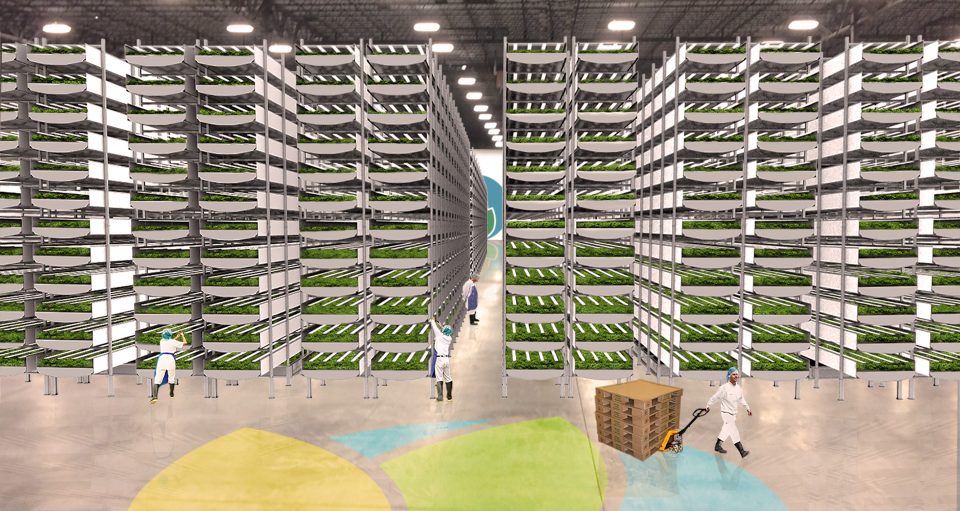USA to get the world's biggest vertical farm that will produce 2 million pounds of food a year

1.5 million acres of productive farmland is lost in the USA every year, due to urbanization.
In order to combat the loss of land, AeroFarms builds indoor vertical farms and is set to open its ninth facility in Newark, New Jersey – one hour outside of Manhattan.
It’s growing crops and improving the model of traditional agriculture by relying on the most high-tech tools available to reduce water and land use and to eliminate pesticide use.
AeroFarms has a temperature-controlled, pest-free world. Workers wear hazmat-like suits and hairnets as they tend to rows of leafy greens that stack all the way up to the ceiling in a place that has no seasons.
Believed to be the world's largest vertical farm, this 70,000-square-foot facility has the potential to harvest 2 million pounds of food a year and will use 95 percent less water than field farmed-food.
6 billion people will live in urban areas by 2050
AeroFarms has been on a mission to combat the global food crisis since 2004 using its aeroponic growing systems.
This technology providers 'faster harvest cycles, predictable results, superior food safety and less environmental impact,' AeroFarms explains on the website.
These warehouses can grow organic produce in less space than traditional farmland uses and bring farms to unexpected locations, including urban food deserts.
By 2050, when more than 6 billion people are estimated to be living in urban areas, the global population will require about 60 percent more food than is currently in production, according to research published in the Journal of Agricultural Studies.
Bringing production to cities could help feed a growing hunger for fresh, local food.
"There is a lot of excitement about vertical farms. You see all of these big amazing renderings, but that’s basically science fiction at this point," says CEO of Indoor Harvest Chad Sykes, a Houston-based company that designs and builds vertical farms.
"Vertical farming right now is a small niche, and it’s not a resolved science; there is still a lot of [research and development] left to do."








